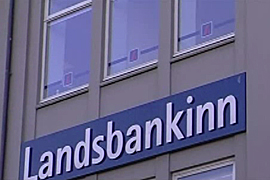Iceland seeks $2bn IMF loan
If approved, Iceland would be first Western state to receive IMF support since 1976.

Immediate funds
Under the agreement, Iceland would be able to draw $830m of the funds immediately.
Geir Haarde, Iceland’s prime minister, said: “This programme will enable us to secure funding and gain access to the necessary technical expertise required to stabilise the Icelandic krona and to provide support for the development of a healthier financial system.
“As a result, Iceland will commit to a sustainable long-term economic policy, and a plan for the recovery of the Icelandic economy.”
He said Iceland would need to repay the loan between 2012 and 2015.
Dominique Strauss-Kahn, the IMF’s managing director, said the agreement should restore confidence in the country’s banks.
“Iceland has put together an ambitious economic programme, which aims to restore confidence to the banking system, to stabilise the krona through strong macroeconomic policies, and to help the country achieve medium-term fiscal consolidation following the collapse of its banking system,” Strauss-Kahn said.
“I believe these strong policies justify the high level of access to fund resources… and deserve the support of the international community.”
Falling currency
Iceland’s once booming financial sector has collapsed in recent weeks, with the government forced to take over the major banks for lack of liquidity.
 |
| Iceland wants to acquire foreign currency |
The krona has nosedived, losing more than half of its value since January.
In an attempt to re-boot foreign trade, the country has been rushing to get hold of foreign currency.
Last week, an Icelandic delegation went to Russia to negotiate a loan that could be worth as much as $5.4bn. The two sides failed to reach an agreement, but talks are continuing.
Earlier this week, Haarde said: “We don’t know how the economy will develop. It is clear that there will be a collapse in our national production, the state’s deficit will be considerably more than we predicted [and] inflation is uncertain because that depends on how quickly the krona will strengthen.”